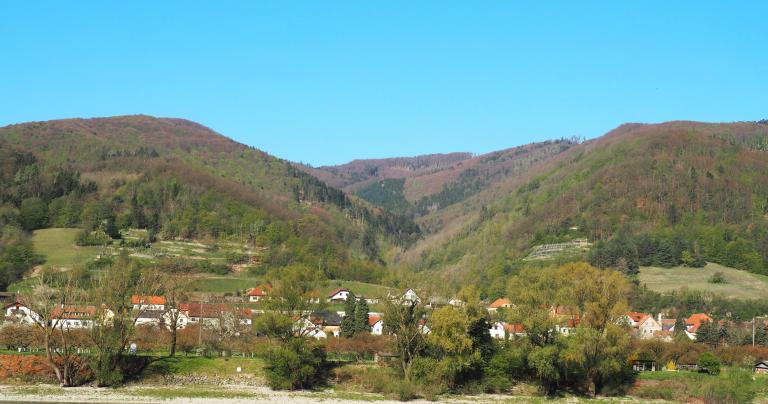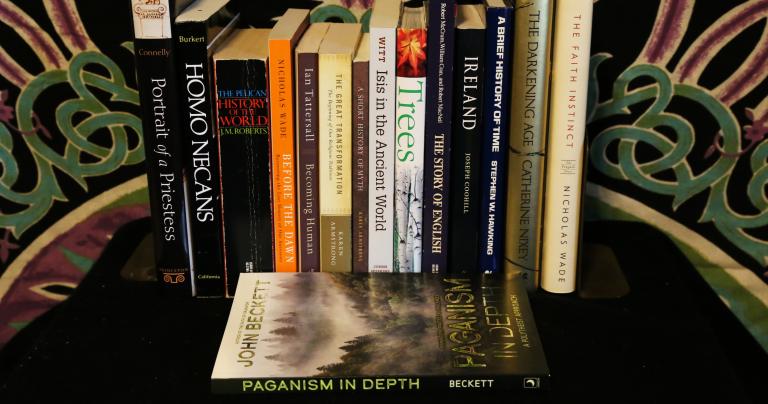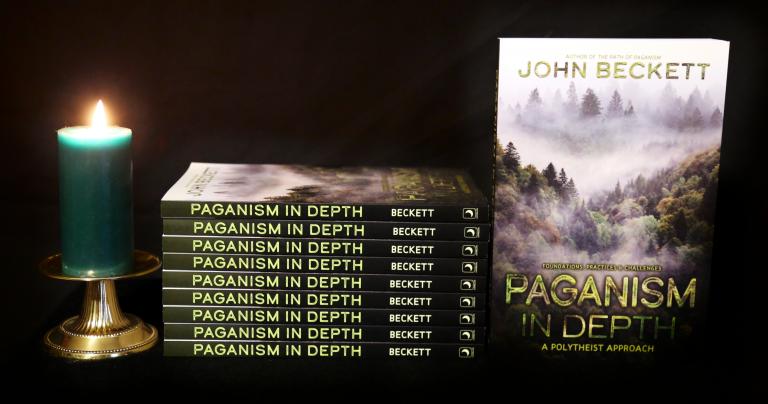If Jews, Christians, and Muslims are the People of the Book, Pagans are the People of the Library. On one level this means we have many sources, not one sacred text. But on a deeper level, it’s a reminder that good religion isn’t just proverbs to be memorized or rules to be obeyed—it’s who we are, what we are, and whose we are. Perhaps surface-level Paganism can be something we turn on when the moon is full and turn off the rest of the month, but deep Paganism is something we live day in and day out. That means it has roots not just in theology but in all the arts and sciences. There is much we can learn from mainstream scholarship.
There is one caveat to this approach. The vast majority of academic resources are written from a nontheistic and materialistic viewpoint. If you’re not sure what this means, go back and read “Facts and Reason: Avoiding Materialist Assumptions” again. Let the experts tell you the facts, but you should decide what they mean.
Most of our Pagan traditions have roots in the beliefs and practices of our ancient ancestors, so start by reading history. Who were the Celts, or the Greeks, or the Egyptians? Where did they come from? How did their culture arise? How did it change over time? Remember: the last pharaoh of Egypt is closer in time to us than to the first pharaoh by a thousand years. While ancient cultures did not change at the rate ours is changing, none of them were fixed, particularly those which lasted for centuries.
As well, don’t ignore more recent history. As Welsh Druid Kristoffer Hughes likes to say, “We’re still here.” The ancestral religion of the Welsh has been affected by the Romans and the English, and by the domination of Christianity. But the stories are still there, the language is still there, and perhaps most importantly, the land is still there.
History requires records, which are hard to come by in eras before writing. Archaeology and anthropology can tell us some things about how our ancient ancestors lived. It can’t give us definitive answers: was Venus of Willendorf (from about 30,000 years ago) a devotional statue of a mother goddess, a self-portrait of a woman, or a child’s toy? We don’t know. But these studies can give us evidence from which we can draw our own conclusions.

Languages
A different language isn’t just a different set of words, it’s a different grammar, different idioms, and ultimately a different way of thinking. Learning languages allows you to read source materials for yourself rather than rely on translators who may have biases very different from your own. Learning a new language (whether living or dead—Old Irish is not the same as Modern Irish) is a major commitment. I personally haven’t done it; I’ve put my study time elsewhere. But there is no better way to get into the heads of writers than to learn their language.
Religious studies
This is a field many Pagans overlook. It’s the systematic study of religion: what people believe, what they practice, and why. The field attempts to make its observations objectively, but “objectively” often incorrectly assumes “nontheistically.” Still, the facts and theories that come out of religious studies can help us understand our own religion and the religions of others. As with other disciplines, we can use the expertise of religious scholars to find the facts we’d otherwise miss and then use our own perspective and judgement to figure out what they mean.
The sciences
Though this is a book of deity-centered Paganism (not nature-centered Paganism), there is still much we can learn from biology, chemistry, physics, and other “hard sciences.” Where were the stars when Göbekli Tepe was first built? Where did melting glaciers at the beginning of the current interglacial period cause sudden and catastrophic flooding, and lead the creation of flood myths? How do the societies of our closest primate relatives differ from ours, and what does that mean for our understanding of the prehuman ancestors we all share?
As always, beware of assuming science “proves” something just because there’s evidence that supports it, and be especially leery of anyone who invokes quantum physics, which is a highly technical field that few outsiders understand. And be wary of making science the final arbiter of what is and isn’t true. Science does a great job of finding facts but is poorly equipped to tell us what those facts mean in our lives.
Science helps us understand the world in which we live, and the world in which our ancestors lived. It provides context for our deepest beliefs and practices. When I look at the most influential books on my shelf, I see science books right alongside books of history and religion. If you’re looking for advanced Pagan books, look outside the Pagan section of the book store.
This is an excerpt from my book Paganism In Depth – A Polytheist Approach, published last year by Llewellyn Worldwide. It’s available from Llewellyn, from Barnes & Noble (paperback or Nook), and from Amazon (paperback, Kindle, or Audible audiobook).
The companion online course is available from my website Under the Ancient Oaks.

















